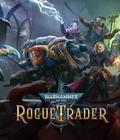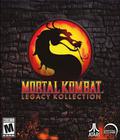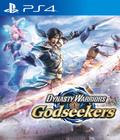While the Dynasty Warriors franchise is best known for its mass army brawler gameplay, it's far from the only thing the franchise has ever explored. The original Dynasty Warriors was a fighting game, and the series has branched out to other genres, up to and including strategy games. Dynasty Warriors: Godseekers is the latest attempt. It creates a more JRPG-style experience than Dynasty Tactics, and while it isn't the strongest SRPG on the market, it's certainly the most Dynasty Warriors-style one.
Godseekers takes us back to the Warring States era in China, and it stars series mainstay Zhou Yun. During the height of the Yellow Turban Rebellion, Zhao Yun and his friend Lei Bin are out exploring. When they're ambushed by the Turbans, they discover a pink-haired woman named Lixia, who claims to be a powerful goddess. Her appearance heralds a change to the world, forcing Zhao Yun to join the battle and find a way to restore peace before someone uses Lixia's power for evil.
The plot of Godseekers is incredibly forgettable. It goes through the same Romance of the Three Kingdoms plot that Warriors usually follows, only with a pink-haired goddess along for the ride. The main cast is fairly dull, and a lot of them sit on the sidelines. Lixia's bored goddess act carries the game's humor and spirit, and without it, you're mostly getting retreads of the same character beats. It's fun enough, especially for Dynasty Warriors fans, but it's not enough to carry the game.
Unlike other Dynasty Warriors titles, Godseekers is a SRPG. You're thrust onto a battlefield in control of a handful of officer units. Enemy units are mostly represented by crowds of soldiers, with each crowd being its own distinct enemy unit. In Dynasty Warriors tradition, the crowd enemies are rather weak, and their only advantage is in their numbers and ability to overwhelm you. The real threat are enemy officers who take advantage of their disposable soldiers on the field to do serious damage to your side. Players and enemies take turns attacking one another until one side achieves victory. Most battles involve capturing a specific location or defeating a specific foe, though some have more complex victory conditions.
Every character in the game has their own distinct attacks. Some only attack single foes, some perform weaker AoE attacks, some attack in cross shapes, some are ranged, and so on. The bulk of what you do in combat is determined by Energy. Every character gains about three energy per turn and can gain more by defending or not acting. Once you get into a fight, you can attack as much as you want. Each move has its own energy cost, with stronger or more dynamic moves costing more energy. If you're smart, you can have a single character tear through multiple enemy units in a single attack string. Powerful characters aren't always the best at clearing crowds, or a character may not have great attack power but can pile bad status effects on a boss.
Each unit is associated with a particular class, each of which has distinct attributes. For example, Power classes get stronger as their HP decreases, and Defense classes block attacks from the front. Both regular units and officers follow these rules. It's critical to know the risks to avoid serious failure. Leave a Power unit injured but alive, and they'll wreck your team on their next turn.
This may sound simple, but it's incredibly engaging. Figuring out how to do the most damage to enemies in a single turn is a big part of the game's appeal. Winning stages isn't the main goal, but winning stages quickly and efficiently is a big part of it. It's important to figure out the series of attacks that will defeat the most enemies because it also has mechanical advantages. Enemies will lose morale, and that makes them weaker. There are optional objectives you can complete, such as defeating five enemies in a single turn, which unlock treasures and items to power up your character. It's almost like a puzzle game. Winning is easy enough, but you need to figure out how to "solve" it to get the most rewards.
Similar to the mainline games, you also have special Musou attacks to do tons of damage. As your warriors fight, they'll build their Musou gauge, and when it's full, they can spend it to perform special moves that obliterate entire groups of enemies. However, since the gauge needs to be full to use, the attacks should be used wisely. More abusable is the Synchro Attack. You also fill up a gauge to charge Synchro, but the gauge is shared among all party members. Once it's full, you can perform Synchro attacks. Every character has a range, and any allied units standing in that radius become part of the Synchro Attack — including characters who have already acted, effectively allowing you to get a second free turn. Additionally, the more people who are part of a Synchro Attack, the more you can mash the X button to increase its damage.
Godseekers is quick, accessible, and focused on beating up tons of dudes. There's more room for strategy than usual, and there are lots of mechanics you can exploit, but at the end of the day, you have a handful of incredibly powerful soldiers slaughtering a huge number of meek foes before running into deadly officers. It lacks the bite of more complex SRPGs, and while it's plenty of fun, it feels strictly average.
It doesn't help that Godseekers is a very visually unimpressive game. The character models and animations are simplistic, and the environments are dour. They do their job but not a lot more, and it's probably one of the worst-looking titles Tecmo-Koei has put out in some time. The music isn't bad, but it isn't the franchise's best either; there's a mix of new and old songs, but nothing really hits the mark. Maybe it's because I've played so many Warriors titles, but nothing here sounded too fresh.
Dynasty Warriors: Godseekers is a fun and light SRPG, but it's held back by its lack of ambition. It does a great job of translating the mook-bashing Warriors gameplay into an SRPG, but that also means it suffers the same flaws as a Warriors title. It's fun for as long as you're having fun obliterating foes, but it doesn't have the teeth to compete with more focused games. It's not bad, and it's probably one of the most relaxing SRPGs on the market. Fans of the franchise or casual SRPG players will have a good time with it, though they may want to wait for a price drop. More hardcore gamers may want to get their SRPG fix elsewhere.
Score: 7.0/10
More articles about Dynasty Warriors: Godseekers











 Dynasty Warriors: Godseekers takes cues from the fan-favorite Dynasty Tactics series, offering players an alternate way to experience the events of the famous saga.
Dynasty Warriors: Godseekers takes cues from the fan-favorite Dynasty Tactics series, offering players an alternate way to experience the events of the famous saga.

































